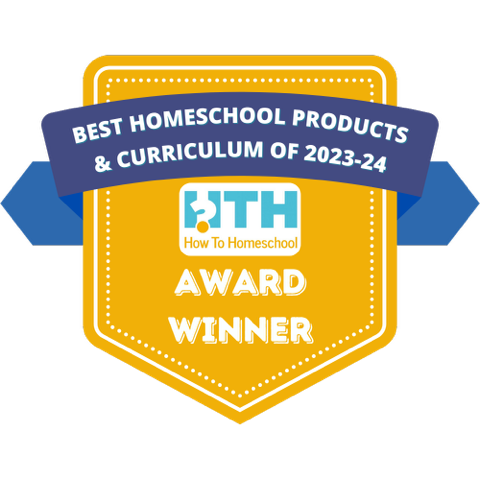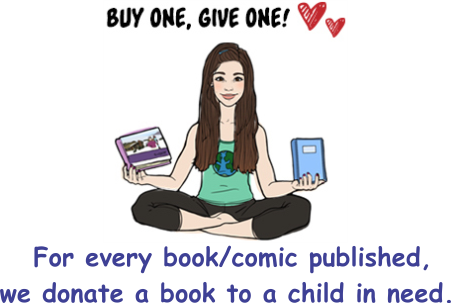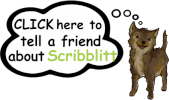 ABOUT THE AUTHOR...
ABOUT THE AUTHOR...
Nicole Panteleakos is a middle-grade author, playwright, and Ravenclaw whose plays have been performed at numerous theaters and schools in Connecticut and New York City. She earned her BA in Theatre Scriptwriting from Eastern Connecticut State University and is currently working toward her MFA in Children's Literature at Hollins University. She lives in Brooklyn, New York, and has three awesome godchildren, two quirky cats, and at least one Broadway song stuck in her head at all times. Planet Earth Is Blue is her debut novel.
 ABOUT THe BOOK...
ABOUT THe BOOK...
"Tender and illuminating. A beautiful debut." --Rebecca Stead, Newbery Medal-winning author of When You Reach Me
A heartrending and hopeful debut novel about a nonverbal girl and her passion for space exploration, for fans of See You in the Cosmos, Mockingbird, and The Thing About Jellyfish.
Twelve-year-old Nova is eagerly awaiting the launch of the space shuttle Challenger--it's the first time a teacher is going into space, and kids across America will watch the event on live TV in their classrooms. Nova and her big sister, Bridget, share a love of astronomy and the space program. They planned to watch the launch together. But Bridget has disappeared, and Nova is in a new foster home. While foster families and teachers dismiss Nova as severely autistic and nonverbal, Bridget understands how intelligent and special Nova is, and all that she can't express. As the liftoff draws closer, Nova's new foster family and teachers begin to see her potential, and for the first time, she is making friends without Bridget. But every day, she's counting down to the launch, and to the moment when she'll see Bridget again. Because Bridget said, "No matter what, I'll be there. I promise."
Scribblitt Interview with Nicole Panteleakos
What inspired you to write Planet Earth Is Blue?
Before I started drafting Planet Earth is Blue, I knew I wanted to write about the Challenger, I knew I wanted to write a nonverbal autistic character, and I knew I wanted to write about a kid in foster care, but I didn’t know what to focus on or where it would go until I heard the song ‘Space Oddity’ by David Bowie. My mother and I were in the car when she played it for me, and I became obsessed with Major Tom, the astronaut in the song who is stuck out in space unable to contact Ground Control. The line “Planet Earth is blue and there’s nothing I can do” stuck out in particular, and I began thinking about a book with a space-obsessed girl who, like Major Tom, faces tragedy and has to accept that there’s nothing she can do to change it. As a former kid who worried constantly about unchangeable things (and an adult who still battles anxiety) I thought kids like me would benefit from a story in which bad things happen and we can’t prevent or fix them, but we can figure out how to pick up the pieces, move on, and continue to have hope for the future. So I owe a debt of gratitude to David Bowie!
Can you tell our audience a little bit about Autism?
This is kind of a complex question, so I urge anyone wanting to know more to check out the DSM-V and/or online resources that go more in depth, but the quick answer is that Autism, or Autism Spectrum Disorder, generally impacts people in the form of social difficulties, sensory issues, avoidance of eye contact, repetitive behaviors, hyper-focus on special interests, and/or communication challenges. Many people on the Autism Spectrum also have, to varying degrees, Obsessive Compulsive Disorder, speech delays or Apraxia of Speech, gastrointestinal issues, poor motor skills, hypermobility, processing issues, ADHD, seizure disorders, and/or Sensory Integration Disorder. Having any of those doesn’t mean one is on the Spectrum, but they’re pretty commonly comorbid with autism. As of the DSM-V, Asperger’s and PDD-NOS are under the Autism Spectrum Disorder umbrella as well.
Autism is identified more in boys than in girls, but recent research has shown that this is in great part because the criteria for autism was developed based on how it affects and was studied in boys. New studies are showing that girls on the Spectrum have been greatly overlooked and/or misdiagnosed as a result. Thankfully, this is changing.
What do you hope readers will learn from Planet Earth Is Blue?
I hope they’ll learn about the Challenger. It was such a huge and traumatic moment for so many of the kids who witnessed it live on TV in the 80s, but it has been largely forgotten by America’s youth. During school visits, I always ask if the students have heard of it before, and even at a college level, most have not. I also want them to come away with a sense of hope, the knowledge that even when everything is at its worst, there are better times ahead, so they should keep looking forward. We can’t fix everything, and we can’t avoid all trauma, but we can get help and persevere and make it through the dark times.
I also hope that those who don’t know much about autism or being nonverbal see the world through Nova’s eyes, and I hope kids like Nova are able to see themselves in her. I had many sensitivity readers who are on the Autism Spectrum, including a couple who either are nonverbal or were at a younger age, because autism is not the same for every Autistic person and I wanted a lot of feedback. I needed to have Nova be authentic and nuanced, not a stereotype, which is why I made sure to show her humor and empathy and affection and imagination, as those traits tend to get forgotten when people are writing autistic characters, contributing to the pervasive, dehumanizing belief that Autistic people don’t experience those things. That said, I also want readers to know she’s just ONE person on the Autism Spectrum; everyone’s experiences are different.
Reading your blog, you say writing is innate. Can you explain why you think that?
This may not be the case for every author, but I can’t NOT write. As a kid, from a very young age, I was writing stories. I wrote my first “novel” as a first grader. It was called Kindergarten Chaos and I intended it to be a picture-free chapter book for kids ages 3-5, because I didn’t think there were enough books for pre-schoolers and kindergarteners without pictures in them to read independently. In retrospect, I’m not sure there’s a huge market for that! All through school, I was writing – often while sitting in math or science classes, where I ignored the teachers’ lessons and made character sketches or plot outlines instead. I’ve written everything – short stories, plays, poems, essays, monologues, song lyrics, news articles, book reviews, manuscripts, fanfiction – and even though I have recently experienced writer’s block in regards to the book I’m trying to write, I am always in the middle of writing something, and when not writing, I’m making up stories or scenes in my head. I can’t imagine life any other way!
What is your favorite quote?
Of all time? Probably “It’s no use going back to yesterday because I was a different person then,” from Alice in Wonderland.
From Planet Earth is Blue? “Sometimes even astronauts can’t reach the stars.”
What is your favorite Broadway song?
This is an impossible question! There are so many – how could I choose just one? My favorite musicals are Jesus Christ Superstar, Big River, Sweeney Todd, and Cabaret, and like most Broadway fans I’m now super into Hamilton, but to pick just one SONG? Eek. I guess if I really had to, I’d probably say ‘Waitin’ for the Light to Shine’ from Big River.
Or ‘Send in the Clowns’ from A Little Night Music.
Or maybe ‘Someone Like You’ from Jekyll & Hyde.
Or ‘A Little Fall of Rain’ from Les Miserables.
Or ‘Cry Me a River’ from Swing!, which I’ve never actually seen, but it’s a great song.
I can’t decide!
What is the best advice you have for aspiring young writers?
Read. Write. And build a community. I have been fortunate to have had an amazing critique partner, Katy Loutzenhiser, who writes YA. She and I met on a playground during a playdate when we were nannies for kids who live in the same building, and we started meeting up a couple of times per week to write, we exchanged work, we saw each other through the querying process, and we got our first offers on our books on the exact same day. Her debut came out in March (If You’re Out There) and it’s fantastic.
I also got to know other writers through my Children’s Lit MFA program, through PitchWars (I was a 2016 mentee and 2018 mentor), and through a Highlights retreat. For middle grade debut authors, plus I’m still close with one of my friends from middle and high school, who works in nonfiction publishing and runs a magazine. Being an author can be very isolating and lonely, so connecting with others in the same boat is invaluable. We can commiserate when needed, champion each other’s work, and celebrate together. With my writer friends, we not only trade WIPs, but we run ideas by each other and share each other’s work with the kid readers we meet, we attend writing conferences (like BookCon), and we’ve started presenting on author panels together. Find your community through Twitter, MeetUp groups, other social media, at your local library, in your school or university… or even on a playground while babysitting!







